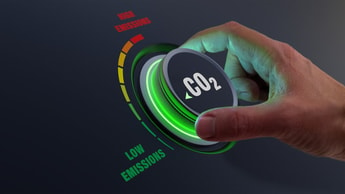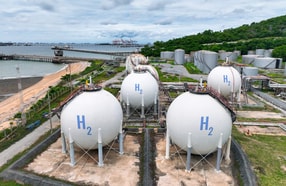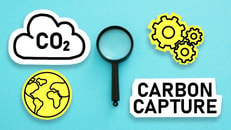Biden-Harris Administration invest $251m in CO2 transportation and storage
The Biden-Harris Administration will expand carbon dioxide (CO2) transportation and storage infrastructure with the $251m investment.
Part of President Biden’s Investing in America agenda, the US Department of Energy (DOE) has already selected 12 projects that will benefit from the capital to boost both new and existing projects.
It is hoped the effort will both significantly and responsibly reduce CO2 emissions from power generation and industrial opportunities.
The DOE notes that expanding commercial CO2 transport and storage will provide new economic opportunities and help achieve President Biden’s goal of a Net Zero emissions economy by 2050.
... to continue reading you must be subscribed





















